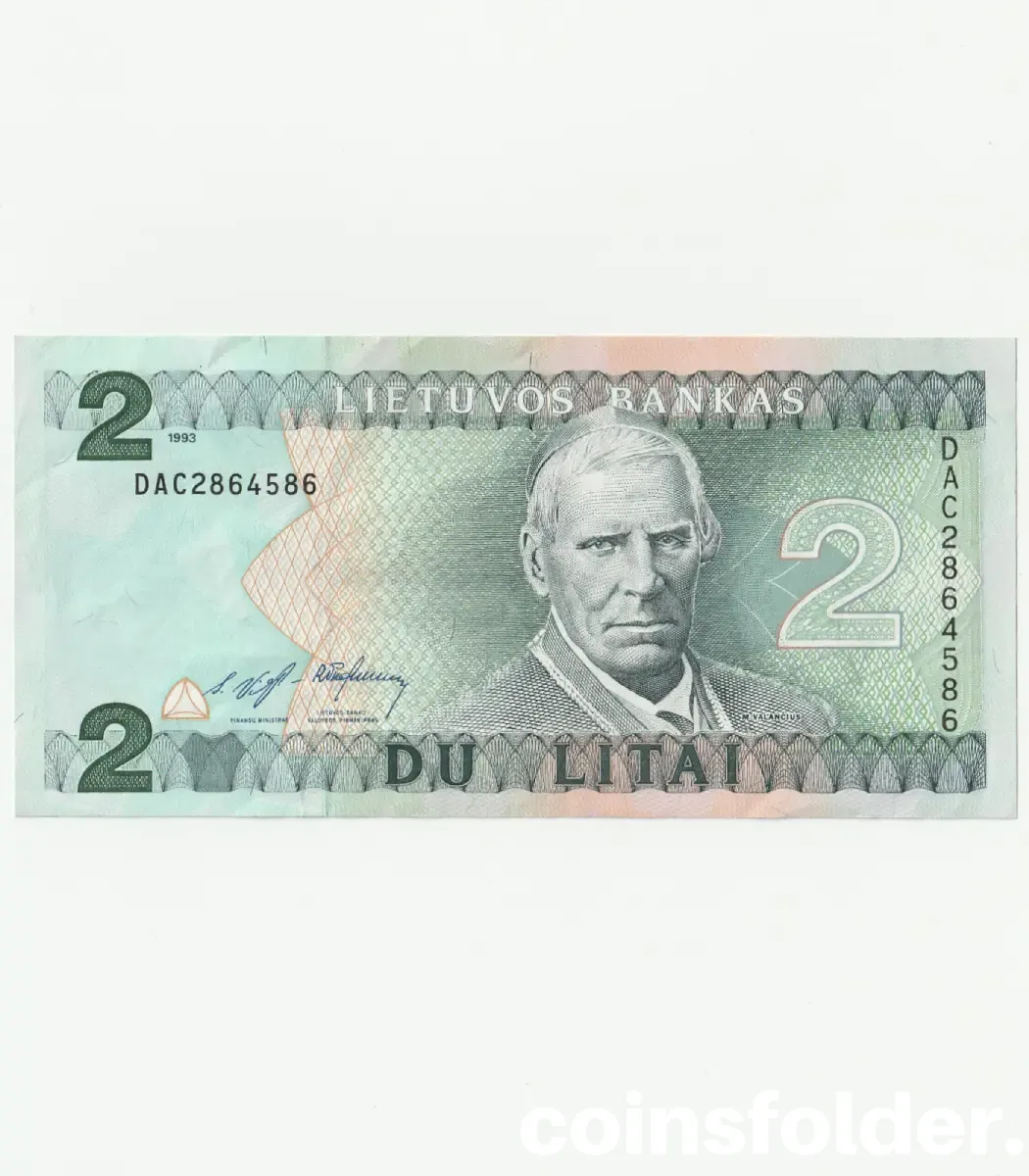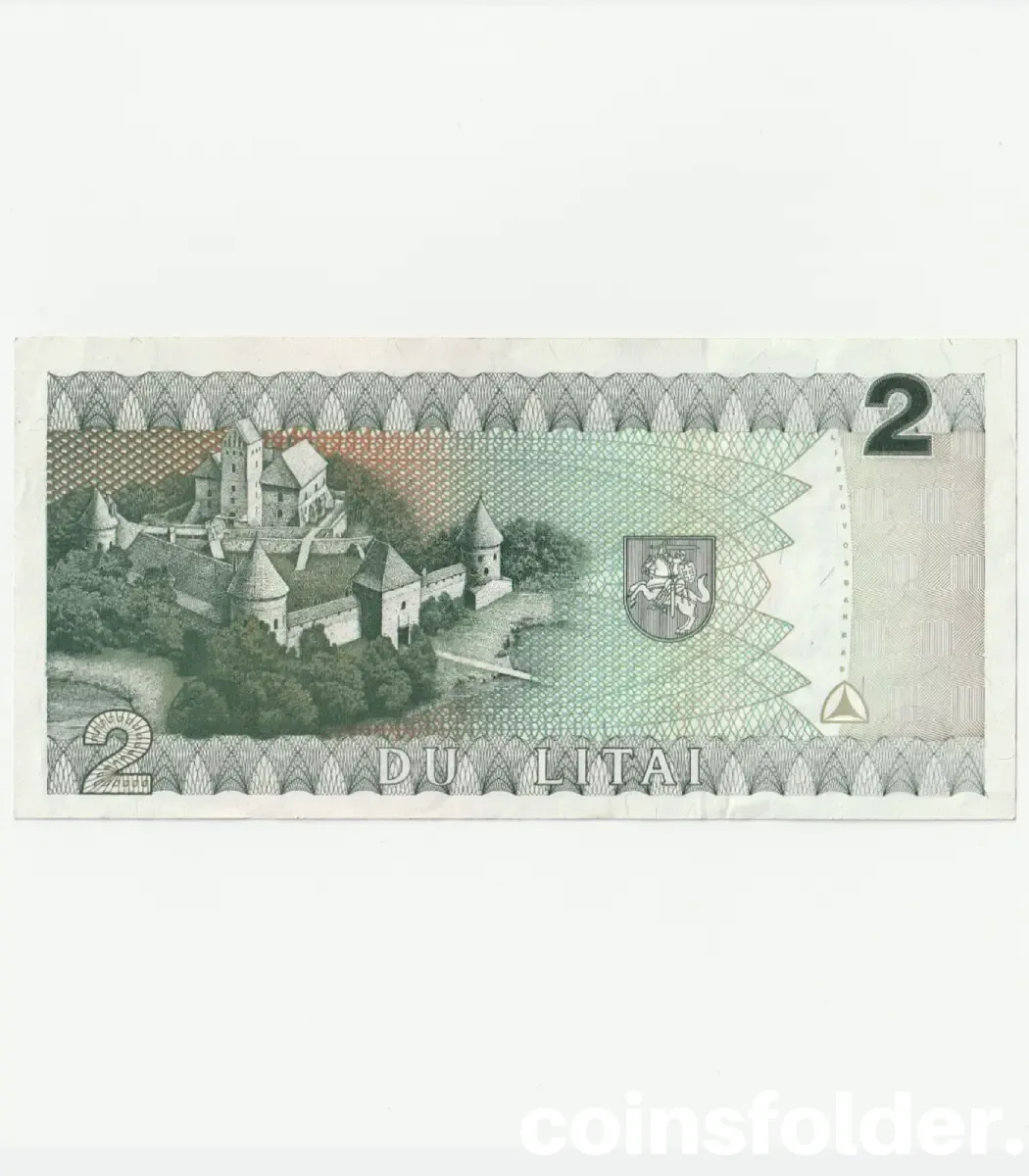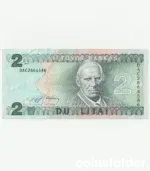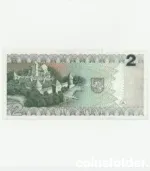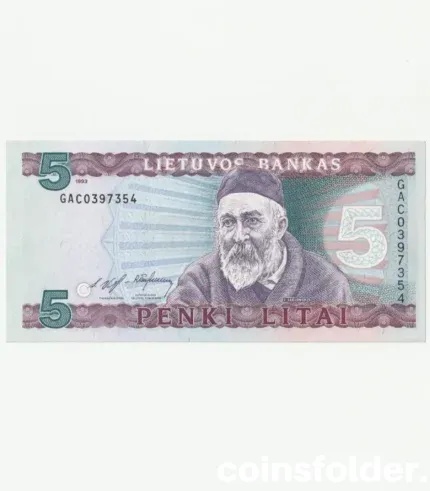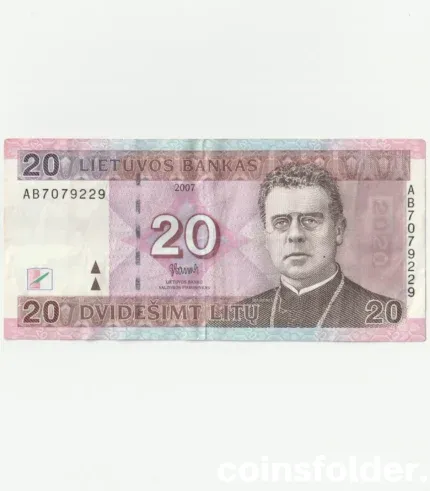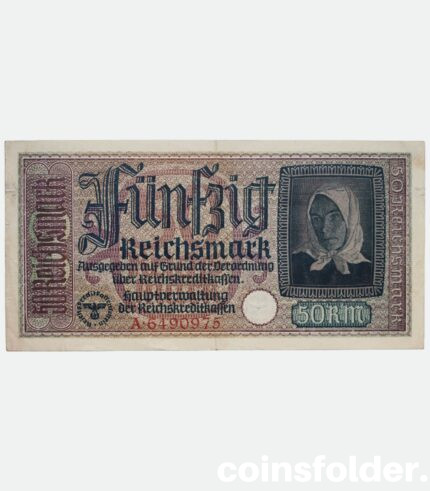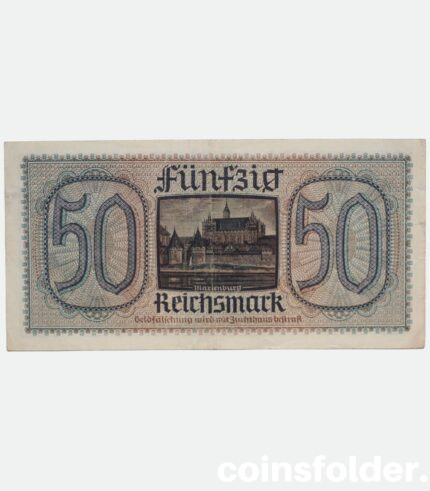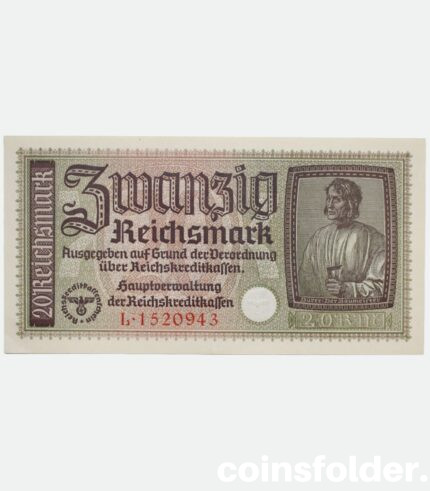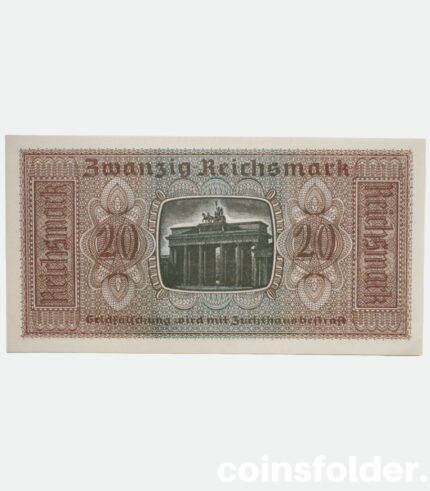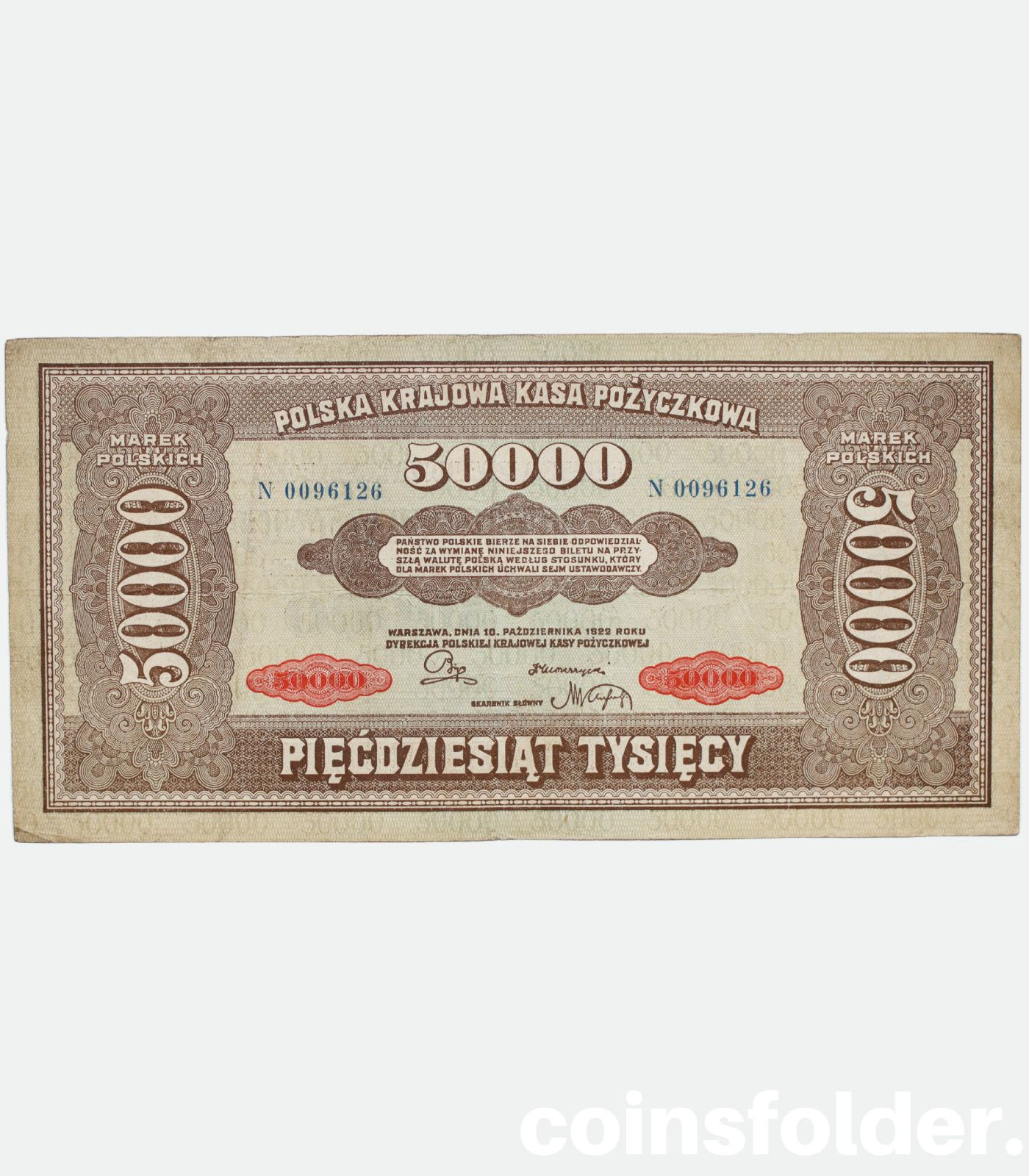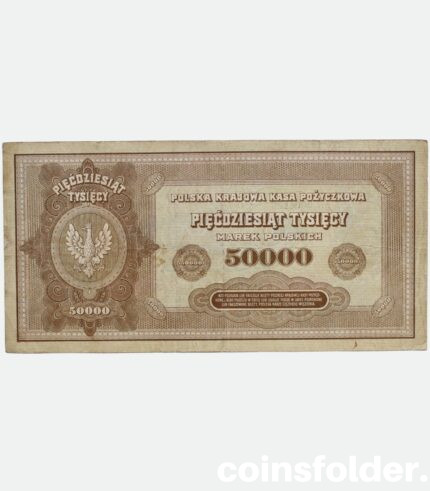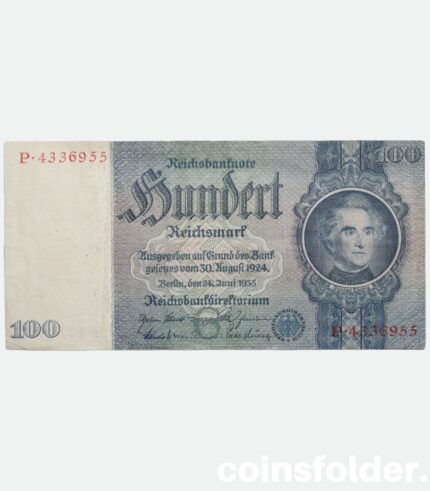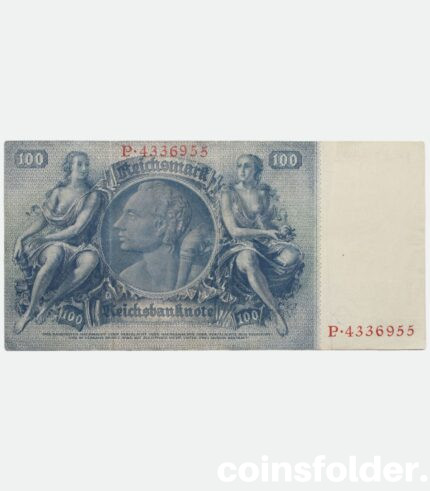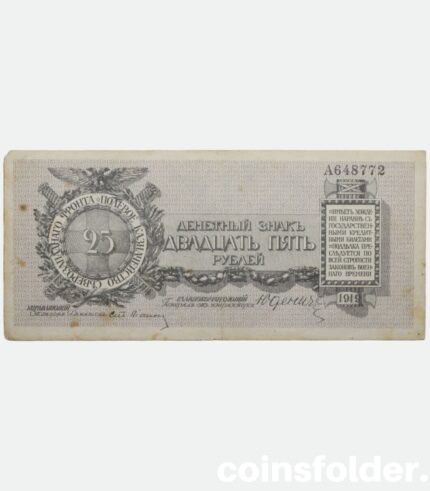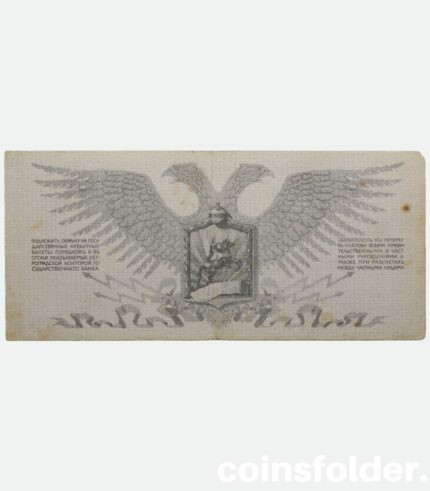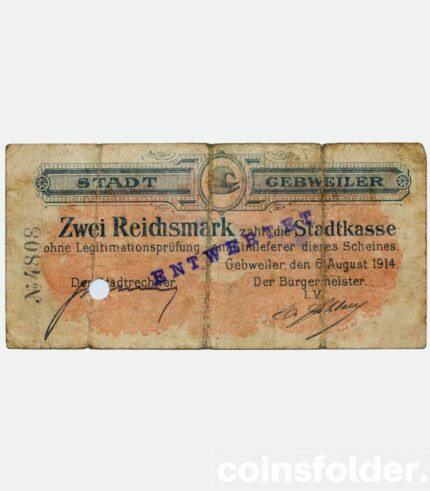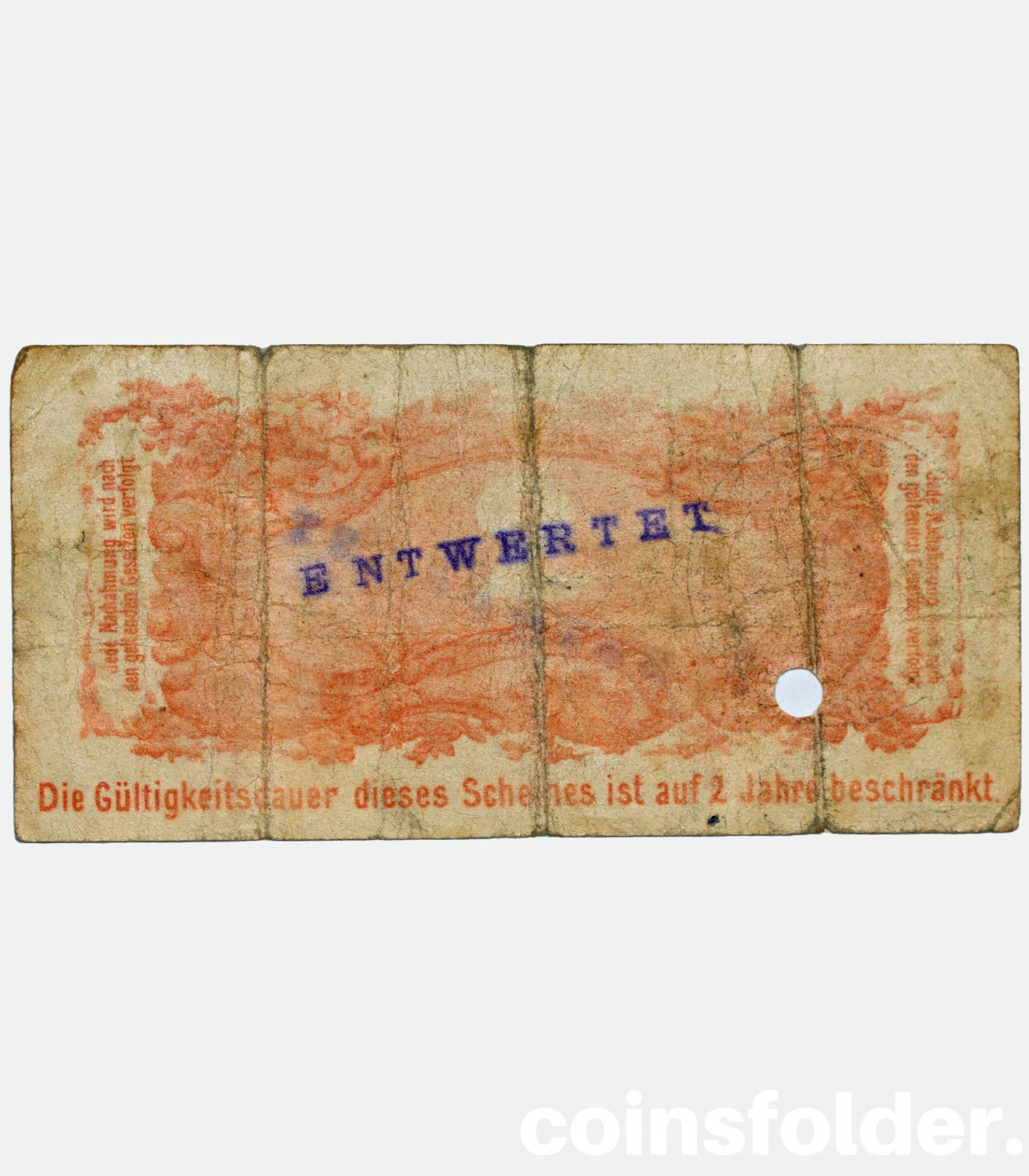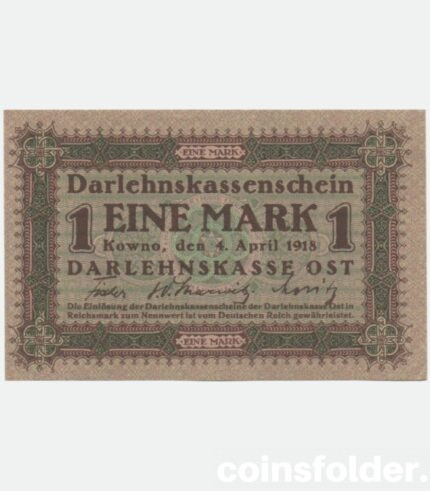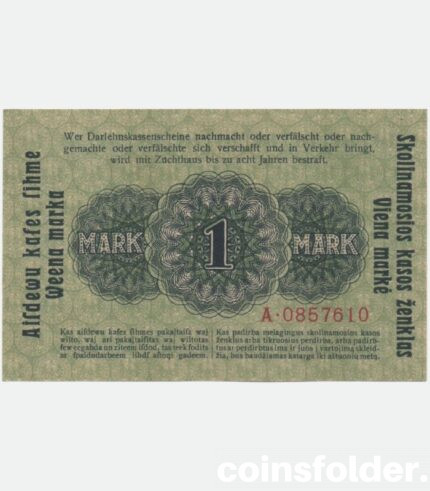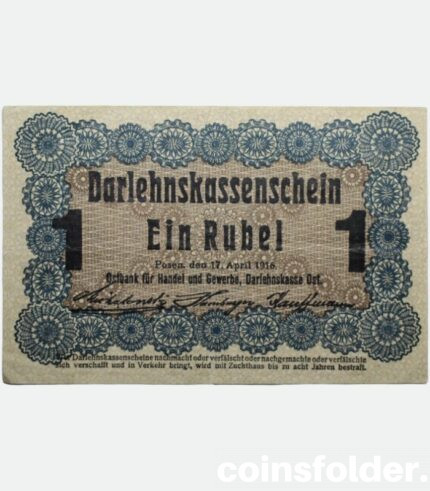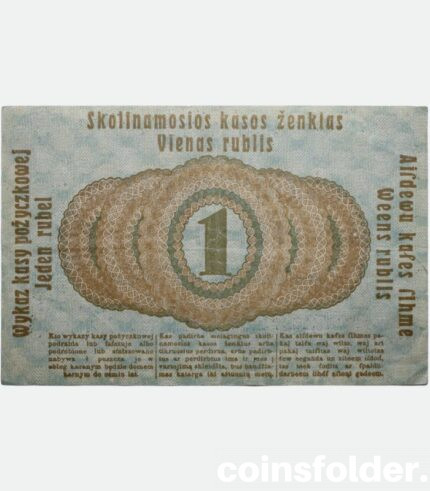The 1993 Lithuania 2 Litai banknote is a significant example of Lithuania’s post-Soviet monetary heritage and serves as an artistic and historical testament to the nation’s cultural revival. Produced by the renowned printing company De La Rue in London, this banknote is a visually captivating piece that features intricate details representing Lithuanian identity, pride, and history.
On the obverse side, the banknote showcases a detailed portrait of Bishop Motiejus Valančius, a prominent figure in Lithuanian history, known for his efforts in education and cultural preservation. Valančius is celebrated for promoting the Lithuanian language and resisting Russification efforts, making him a symbol of Lithuanian resilience and dedication to national heritage. His portrait, located at the center right of the banknote, is set against a black and dark-green palette on a pale green background with multicolor underprint. The contrast in colors enhances the depth of his image and adds to the overall aesthetic appeal, emphasizing his importance in Lithuanian culture.
The reverse side of the 1993 Lithuania 2 Litai banknote offers a scene that captures Lithuania’s architectural heritage with an illustration of Trakai Island Castle, a historic fortress situated on an island near Vilnius. Built during the 14th century, this castle stands as a lasting emblem of medieval Lithuanian history and resilience. Depicted in green on a multicolored underprint, Trakai Castle is located at the center left, exuding a sense of historical strength and beauty. Adjacent to the castle is Lithuania’s National Coat of Arms, the “Vytis,” positioned on the right. The Coat of Arms reinforces the theme of national pride, symbolizing Lithuania’s dedication to sovereignty and freedom.
For added security, the 2 Litai note includes a watermark of the Lithuanian Coat of Arms. This feature not only ensures authenticity but also highlights the note’s cultural value. Collectors and enthusiasts often seek out the 1993 Lithuania 2 Litai banknote for its vibrant colors, cultural symbols, and the exceptional craftsmanship of De La Rue. Whether as a numismatic collectible or a piece of Lithuanian heritage, this banknote holds a special place in the hearts of collectors and those interested in Eastern European history.

 Art
Art Asian
Asian Banknotes
Banknotes Numismatics
Numismatics Porcelain
Porcelain Buttons
Buttons Jewelry
Jewelry Silverware
Silverware Ceramics
Ceramics Militaria
Militaria Books
Books Glassware
Glassware Leatherware
Leatherware Philately
Philately Other antique
Other antique Gifts
Gifts Accessories & Services
Accessories & Services